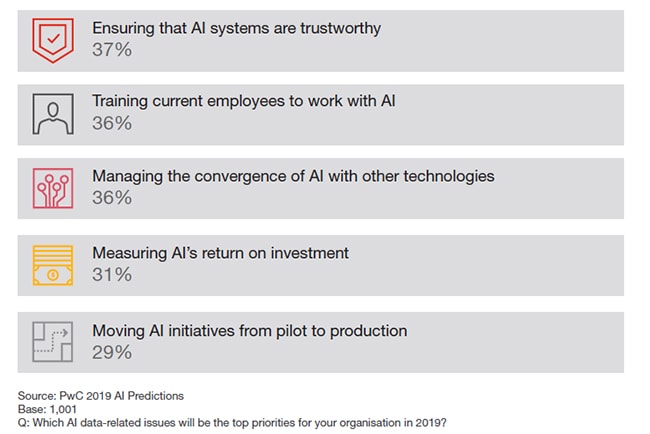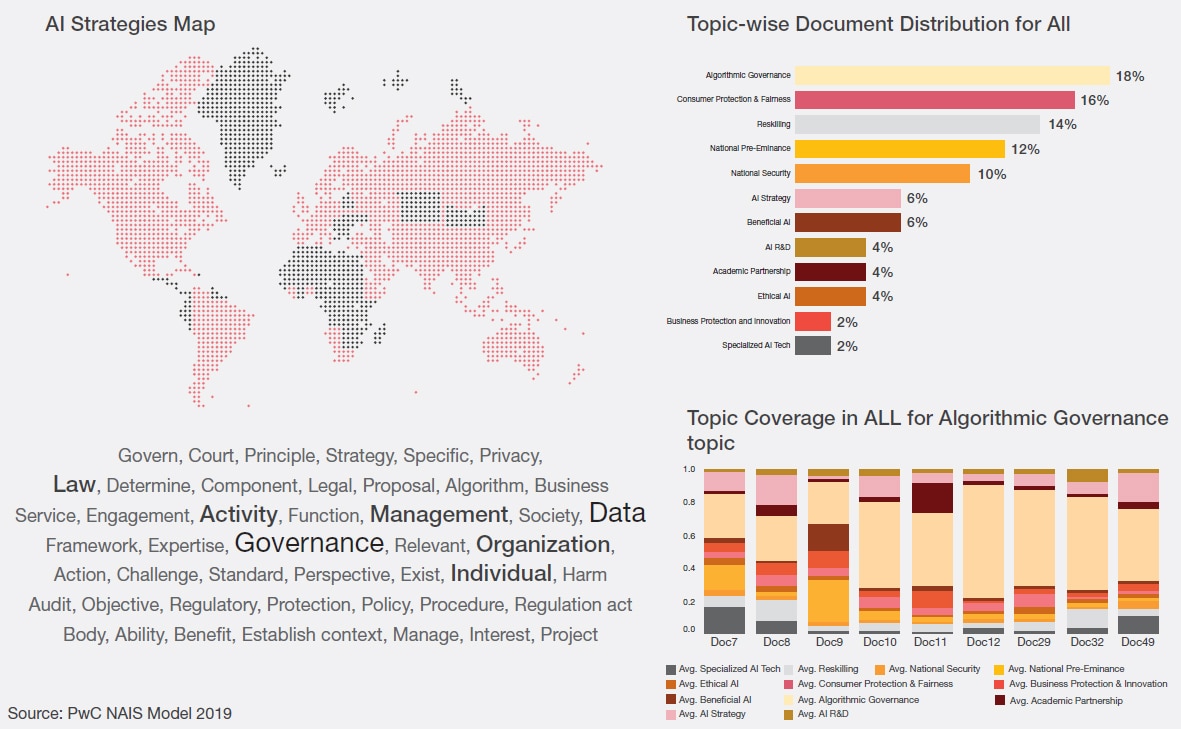Policy Making & National AI Strategies
Gaining National Competitive Advantage through Artificial Intelligence (AI)

Governments are vying with each other to develop national AI strategies to attract and foster business investment and innovation; educate, train, and create a skilled workforce now and into the future; provide the benefits of AI to their citizens, while protecting them from some of the potential risks of AI. Cognitive, behavioural, and network capital are the three primary sources of capital that governments need to leverage to gain competitive advantage. AI policy making requires a number of trade-offs that will ultimately be driven by societal values and what each nation wants.
Top five AI challenges for companies in 2019

From a Bionic Company to a Bionic Nation

Given the exponential growth of technology it is understandable that nations are vying with each other to develop their own national AI strategy. How can AI advance a nation's competitive advantage? Delving into the six different forms of capital bionic companies* use to build competitive advantage and applying them to nations, will help answer this question.
* Everson and Sviokla, 2018
Risks of Artificial Intelligence
National AI policies have significant ground to cover. Besides working to increase domestic competitiveness and help businesses succeed with AI using the six forms of capital identified above, these policies also aim to address certain key concerns that accompany the technology.
At PwC, we group the risks associated with AI into six types:

The National-Level risks are more more important, far-reaching, and impact the socio-economic environment in which AI systems operate. These are issues that need to be tackled at the national, supranational, or societal level, across the globe.
The Business-Level risks are related to how AI systems are scoped, designed, built, tested, monitored, and refined. Mitigating these risks may require changes to the way organisations build and govern AI systems.
Managing Trade-Offs
Some countries have started exploring a series of trade-offs that AI presents in an attempt to address them in their policy documents, acknowledging that all of society - businesses, individual consumers, and academics alike - plays a role in how these issues are managed.

Call to Action: Focus Areas for National AI Strategies
Given the considerable opportunities and risks associated with AI, national strategies should leverage the opportunities while mitigating the risks.
At PwC, we have developed an automated natural language processing tool called, National AI Strategies (NAIS) Radar, that analyses all documents on national AI Strategies and performs topic modeling and summarises the key policy recommendations being made by different countries.

Key topic areas addressed by different national AI strategies, along with details on specific documents and policy areas.

Call to Action: Businesses
As more countries release national AI strategies, businesses should follow these developments closely - and get involved in helping their governments shape policies that will impact the ways that AI and related technologies transform the business landscape. Companies should consider joining policy working groups and jointly advancing AI skills and education, as well as pursuing other efforts that help clarify how to balance their business interests with the greater good.
Given the massive opportunities and potential risks associated with AI, companies, global bodies, nonprofit groups, citizens, and policymakers must come together to devise the right strategies that consider the various trade-offs in ways that make sense in their country. Not having a coherent, comprehensive national strategy could put future generations at a competitive disadvantage.
Taking steps toward responsible AI








